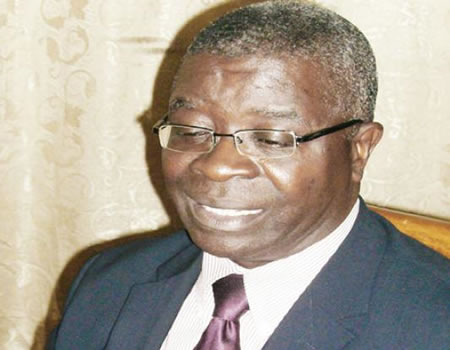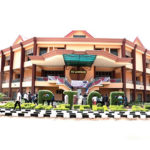Former Vice Chancellor of Obafemi Awolowo University (OAU) Prof. Wale Omole, has advocated for the establishment of agro-industrial parks across the country to help in the economic transformation of the country and to achieve sustainability of life in the nation.
Onnoghen: Senate cancels emergency resumption heads to Supreme Court
Omole who said this at Joseph Ayo Babalola University (JABU), Ikeji Arakeji, while delivering the ninth convocation lecture titled: “Education and Agricultural Value Chains for Industrialization of Nigeria.” said this would accelerate economic transformation and attract domestic and foreign direct investments.
He lamented over the poor economic and industrialisation drive of the country, noting that the poor drive towards industrialisation are being determined mainly by trading rather than production and productivity, blaming it on deficient education curriculum.
Omole who identified a strong nexus between education and agriculture in the drive for industrialization, also faulted the curriculum inherited from the colonial master.
He said “For emphasis, the education curriculum we inherited over a century ago disconnected us from our land, and indeed really disconnected us from several other growth pathways of our lives.
“We must review them and adapt them for our benefit. The fault is in us, for keeping them this long. It is getting too late. We must wake up, rise and move forward.”
He advocated that the nation must formulate a reversible structure between education and agriculture which would be different from the structure inherited in order to find a lasting solution to the menace and cause real development.
“We must accept the fact that the real development of education in our country must depend on the establishment of industries. Industry is the greatest consumer of the trained manpower that education produces.
“In order to achieve sustainability of life in our country, we need to carefully and without delay establish agro-industrial parks, agro-industrial communities, agro-industrial towns and cities possibly in each state.”
According to him, the industrial drive would link the education sector through research while the agro-industrial parks, communities and cities would take care of the total agricultural enterprise and business.
“It is obvious that industrialization in Nigeria will depend on agriculture; an endowment of the rich land that generally remains green all year round.
“The major agro-industrial park in each state will serve as the hub, while food production nodes will be created in strategic points for on-farm adaptive research, processing and value chain.
“It is the sum of all the parks and nodes that will within a short time industrialize Nigeria. They will provide jobs for our youths, engage different age groups to work and see the results of their labour,” Omole said.
The pro-chancellor and chairman of the University’s Governing Council, Prof. Anthony Imevbore, urged that the Ecological Sustainable Industrial Development (ESID), an initiative of UNIDO, should be adopted in Nigeria.
“One important ecosystem where ESID needs to be applied in Nigeria is in the restoration of Lagos Lagoon which used to be the breeding ground for fresh water fishes.”
Professor Imevbore disclosed that the Lagos Lagoon used to be breeding grounds for fishes during the rainy and dry seasons but now extinct due to industrial effluents and general wastes from factories.
“It is for this reason that today there is a pressing need to clean Lagos Lagoon to restore it to its former status.
“Agriculture evidently occupies a special place in our overall quest for sustainable development.






